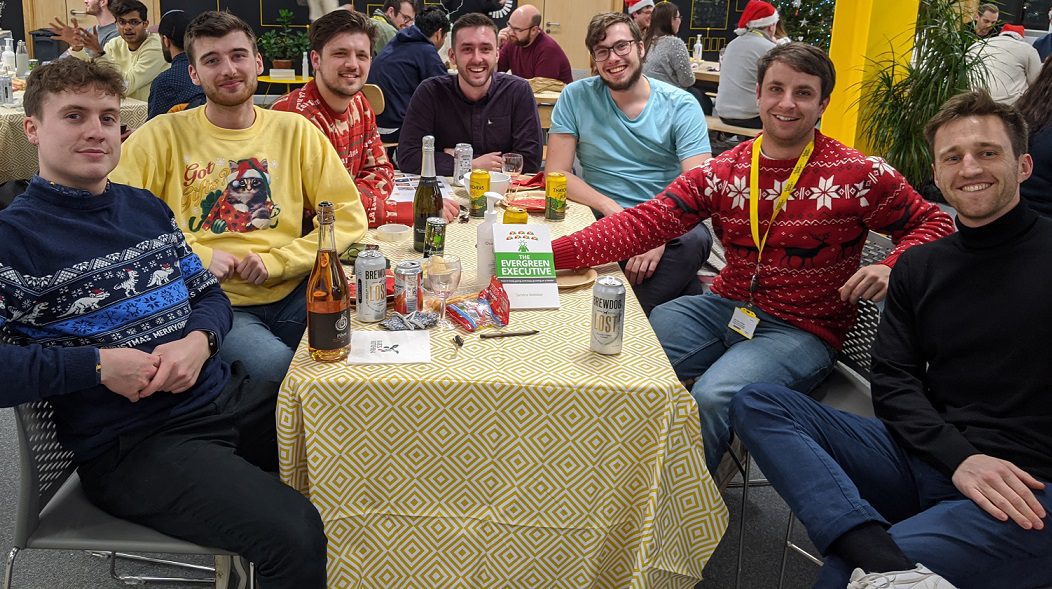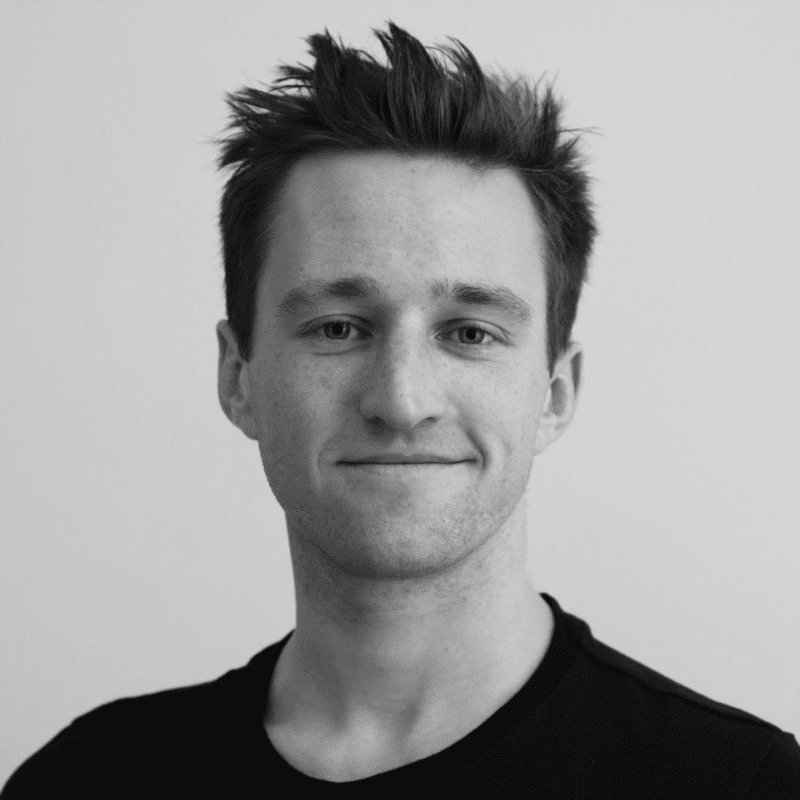Indus Fusion’s journey began here at Future Space and the University of the West of England long before they were officially founded in 2020.
In June 2020 the team were awarded £75,000 from Innovate UK to develop an automated vaccine preparation service, and this summer they took home the Journey award at our first ever member awards. We met up with their Co-founder Arthur Keeling to hear their story.
“When I left university I wanted to try out a few of the business ideas that I had. Because of the connection between UWE Bristol and Future Space I was able to join the Launch Space incubator programme and get one-to-one mentoring and support to develop these ideas. “
Where did your journey begin?
I studied the Team Entrepreneurship course at the University of the West of England for three years. This course allows you to learn everything you need to set up and run a business alongside your studies.
When I left university I wanted to try out a few of the business ideas that I had. Because of the connection between UWE Bristol and Future Space I was able to join the Launch Space incubator programme and get one-to-one mentoring and support to develop these ideas.
We knew that the ability to use automation can have a huge impact on the ability of businesses to achieve everyday tasks. Yet we found by talking to businesses that making it a reality can be unnecessarily hard.
How has the support at Future Space helped you to innovate and grow?
Once we’d developed our ideas into a clear business plan, we were able to apply for funding and investment.
This enabled us to grow, and we moved into Future Space permanently, where we were able to tap into support from the Bristol Robotics Lab to scope out ideas and access equipment.
Being located at a university and getting the funded support through Future Space is fantastic for this – they have equipment that you simply can’t afford as a startup business, which means you can test ideas and learn quickly. It also allows you to trial equipment before you invest in your own.
The Health Tech Hub is also located here and connecting with them has now led to us working with a multinational pharmaceutical.

The team at Indus Fusion
What makes Indus Fusion innovative?
Integrated technology projects deliver real value. Tesla has profited from their network of cars, superchargers and navigation which provide its customers with a superior driving and ownership experience.
Integrated technology projects will be part of the technology landscape of the future. However, the tools to make these systems are not readily available, they are complex and very expensive.
We are doing for automation what Shopify did for eCommerce. Providing organisation’s with the platform and tools they need to develop integrated automation projects.
What is Indus Fusion working on now?
We’re proving our technology in the pathology sector, working with a pharmaceutical company that is processing PCR tests. In order to get the samples in the system, the company has to open thousands of boxes and bags and extract samples manually. This takes time and they don’t have enough staff. We’ve been developing an automated system for this to happen using fewer people.
We’re also bringing tools together from in the cloud and in the physical world. For example, if a blood sample has spilled in a bag, then this sample is void. Rather than this being done manually, our technology is able to take a photo of the bag because the sensor has detected there is a spill, connect that to the cloud and send an automatic message with the right evidence.
Another area we’ve been developing is our work with the NHS innovation teams based in London to help with automating services in the care sector.
For example, there is a lot of technology that supports the care sector – such as a mattress that helps you to know if someone has wet the bed, all the way through to a sock that is measuring stress levels through sweat or blood pressure.
But each of these operates separately. What we do is provide a connected infrastructure that brings all this information together. In the care world this gives staff a more holistic view of the patient, which not only helps the patients but also saves the staff time and money, as it avoids unnecessary GP callouts, for example.
By using connected devices in the care home staff are also able to detect certain situations before they happen, which gives them more time to deal with them before they become disruptive or dangerous.
For example, some dementia patients can sometimes forget where they are which causes stress. There are indicators that can tell you when a patient is in distress, such as increased sweat levels, blood pressure changes, and oxygen levels. Connected devices can detect these, and then also use location devices to detect the nearest member of staff.
“Digital healthcare can make the difference between whether a person gets accurate and timely care and treatment.”
Why is the work you do important?
Digital healthcare can make the difference between whether a person gets accurate and timely care and treatment.
Around 95% of clinical pathways rely on patients having access to pathology services. 500 million biochemistry and 130 million haematology tests are carried out per year. 14 tests for each person in England and Wales are performed annually. 300,000 tests are performed every working day. It’s the engine that’s running behind what we see on the frontline. So that ability to get tests through more quickly, reliably, pick up errors is critical.
People worry that automation will take away jobs, but in reality it is replacing vacancies that aren’t being filled. These vacancies are leading to people having to work longer hours or moving backwards or sideways to fill gaps in their teams. Automating these tasks frees up time for people to focus on developing new ideas, or delivering frontline services.
What’s next for Indus Fusion?
We’ve got more people coming to us for support than we have the capacity to take on board at the moment. We’re about to do a funding round and we hope to use this to build the team so we can deliver a healthcare project we’ve been approached for in Africa, and scale the projects we’re delivering at the moment.

